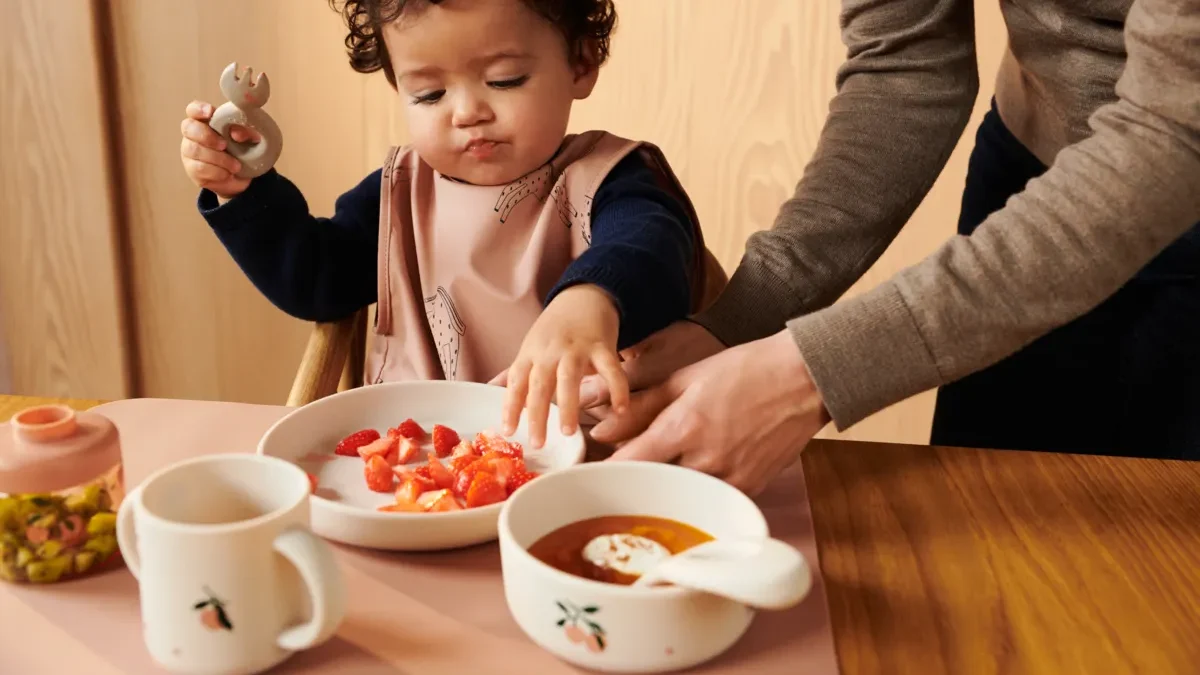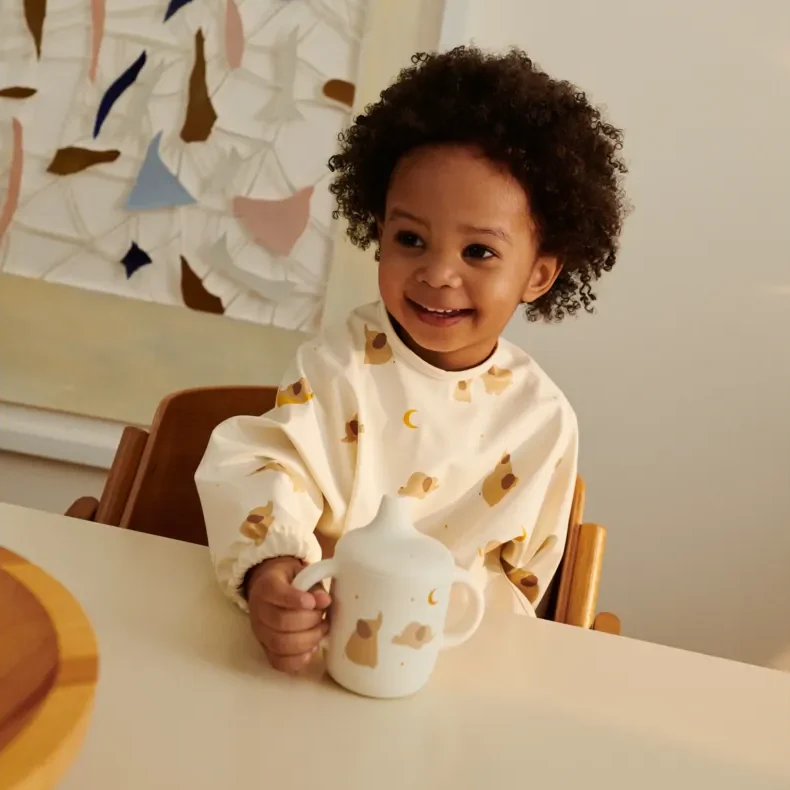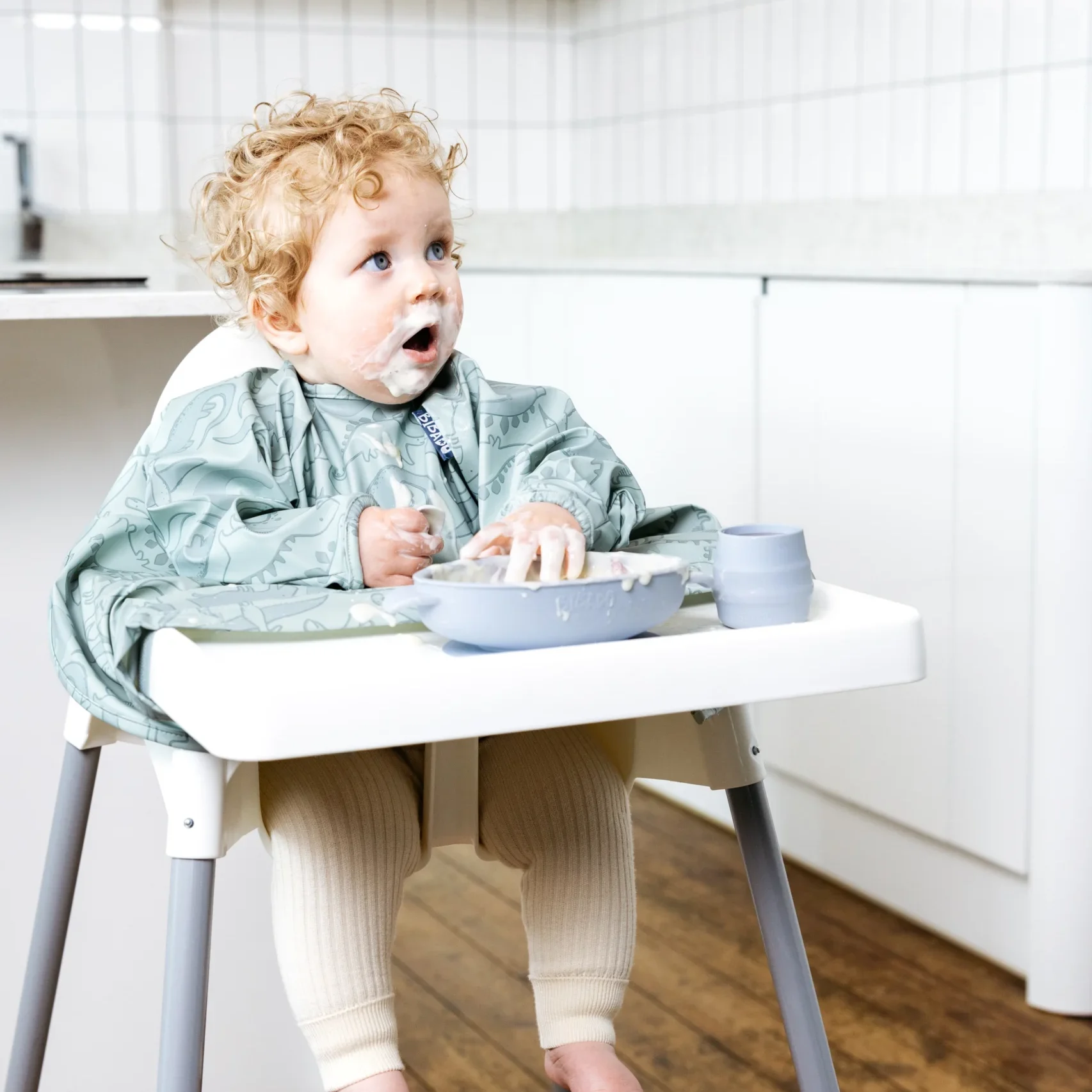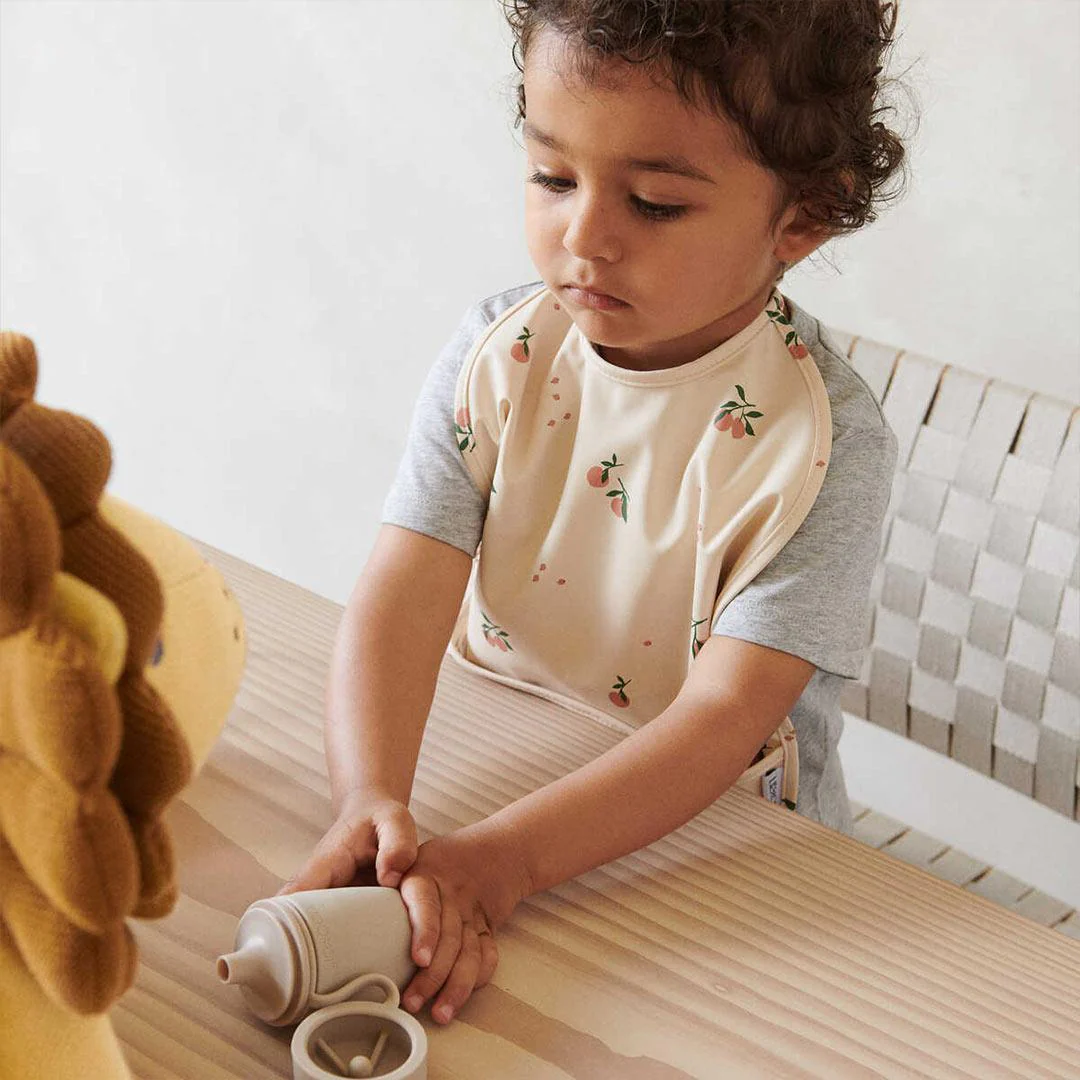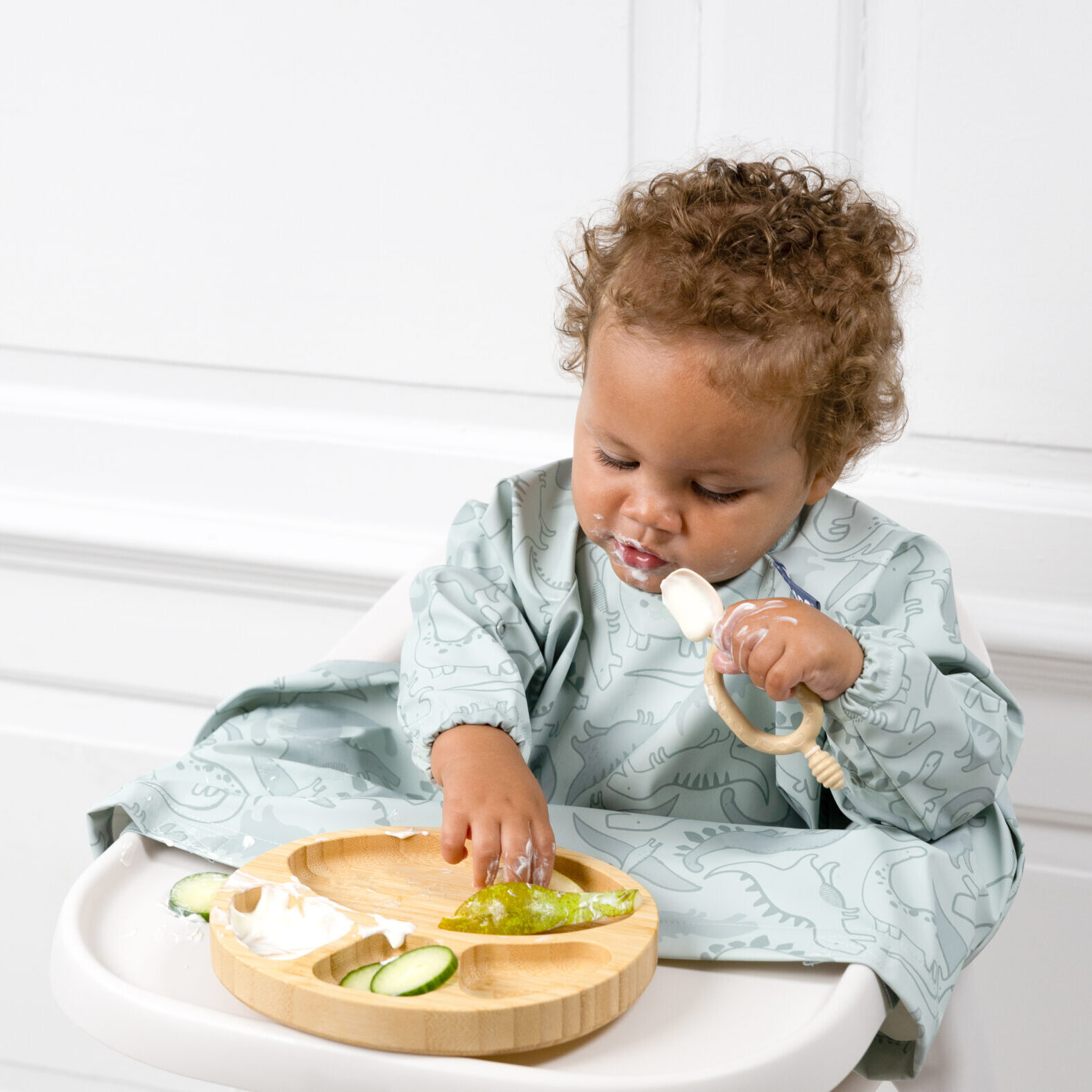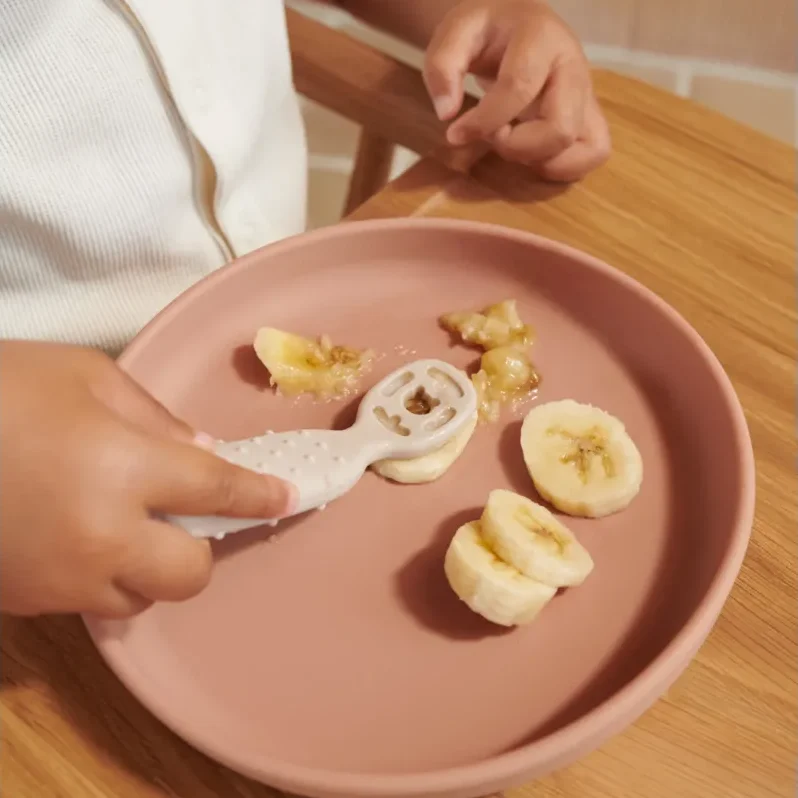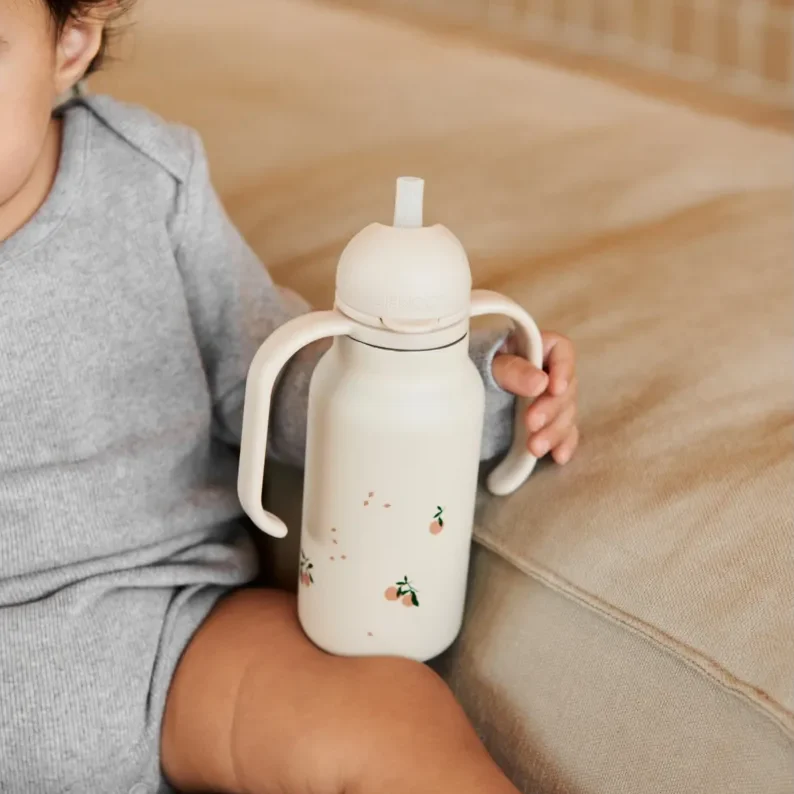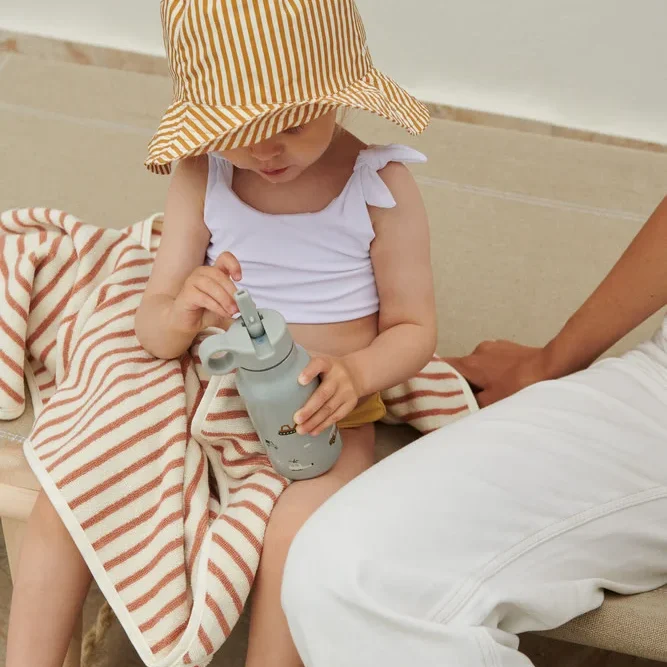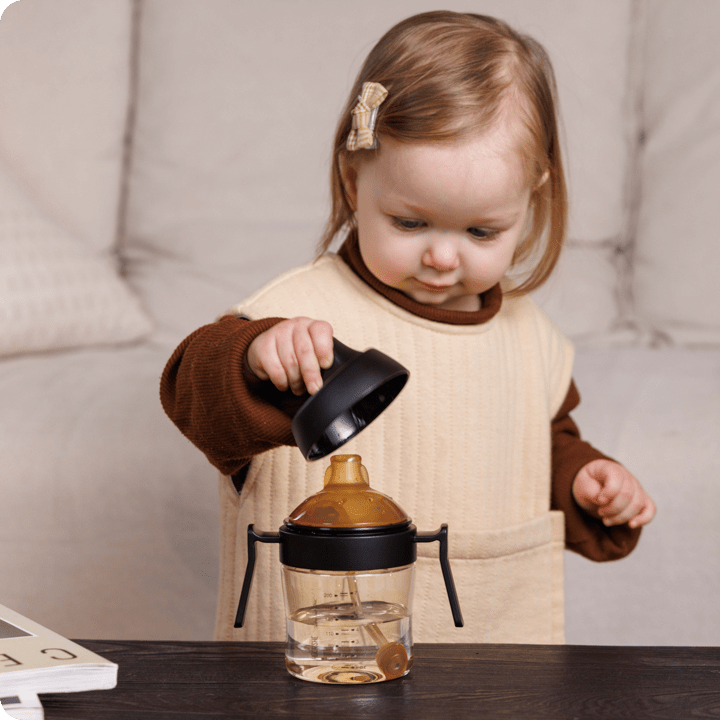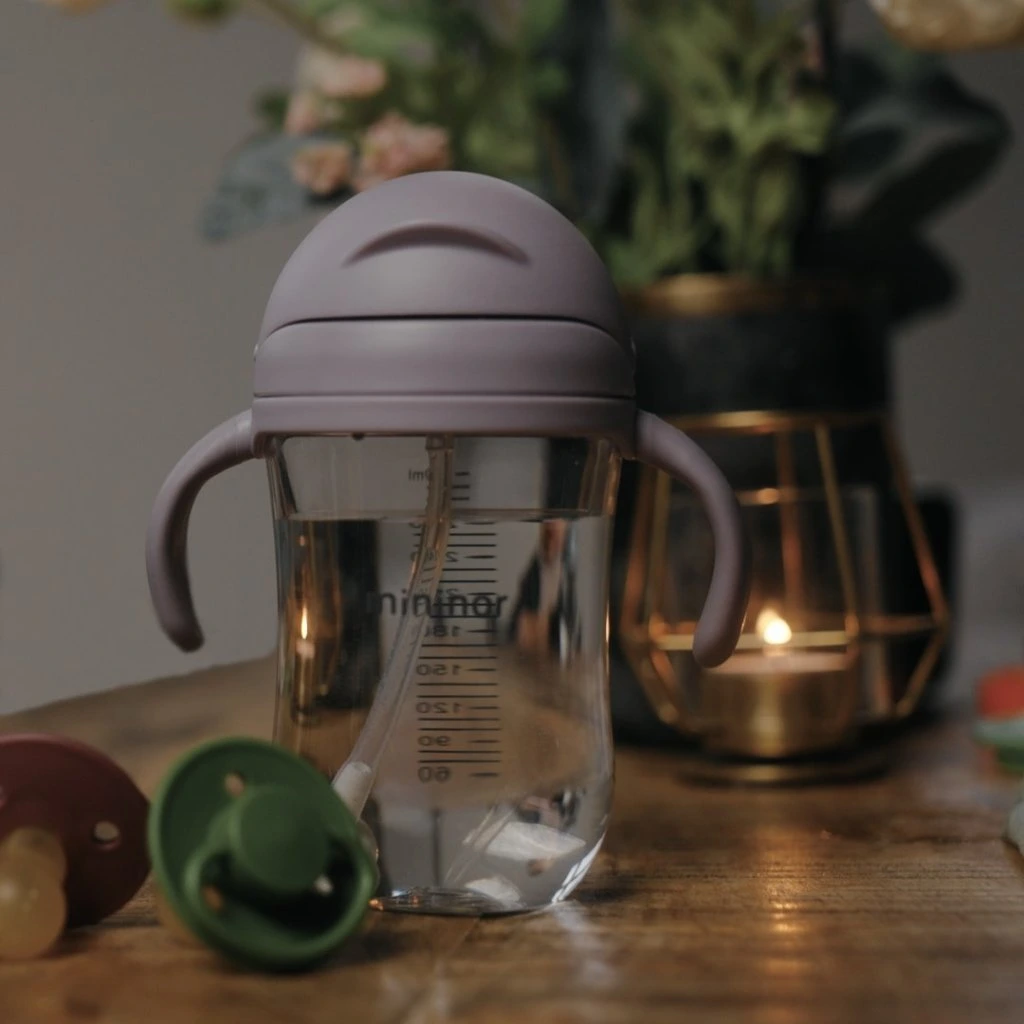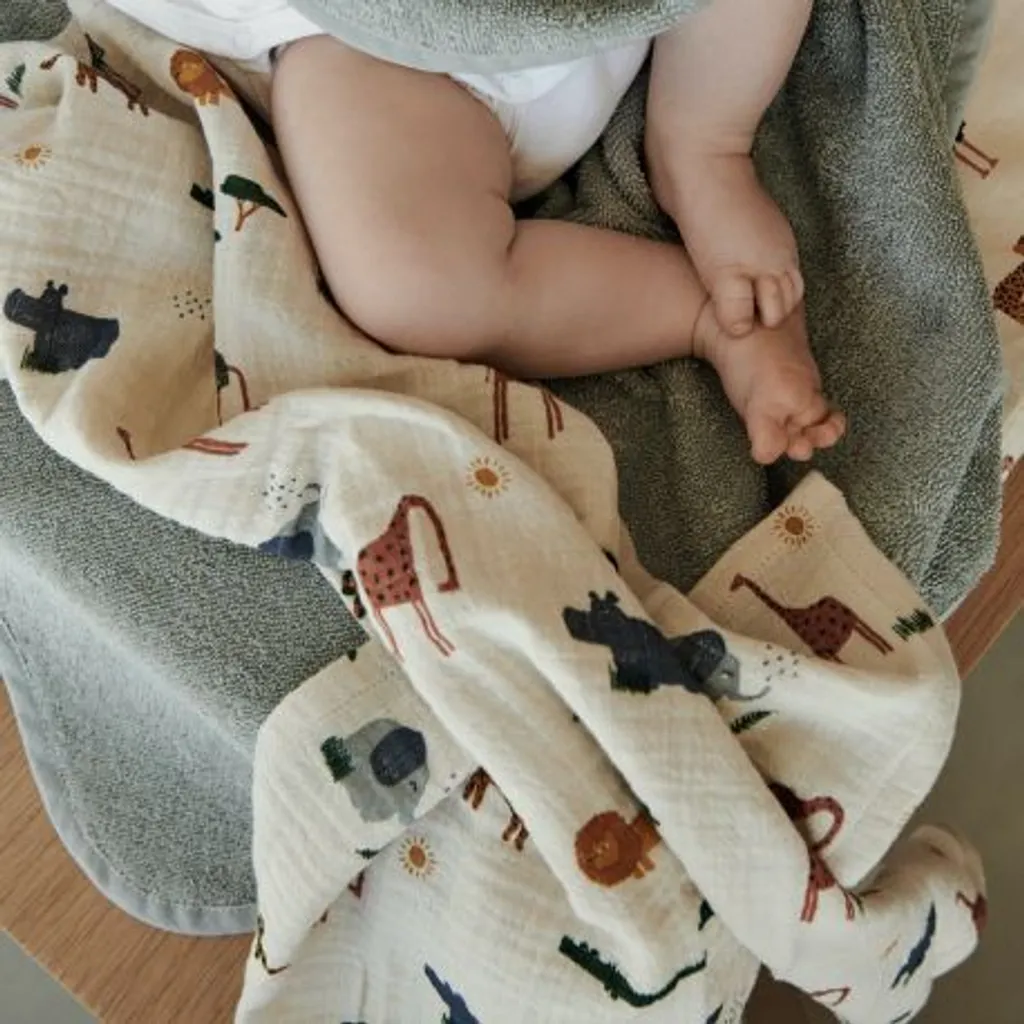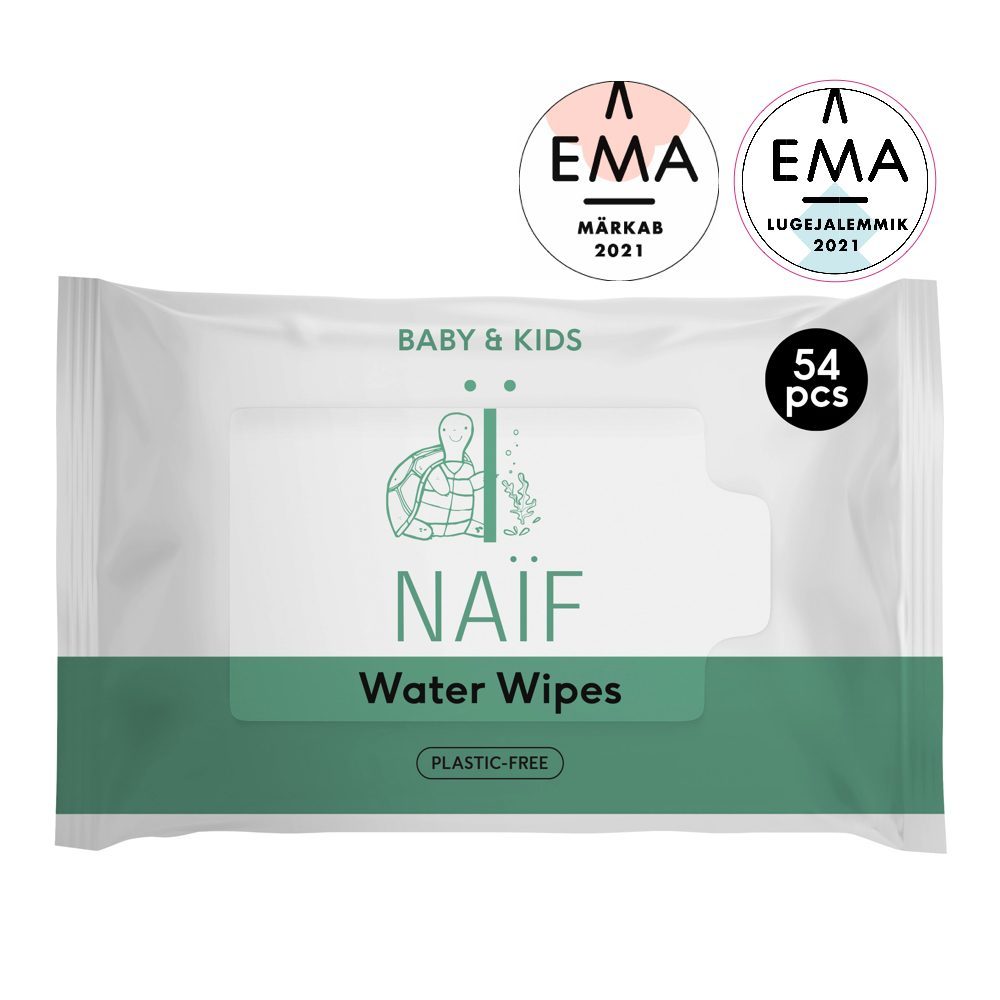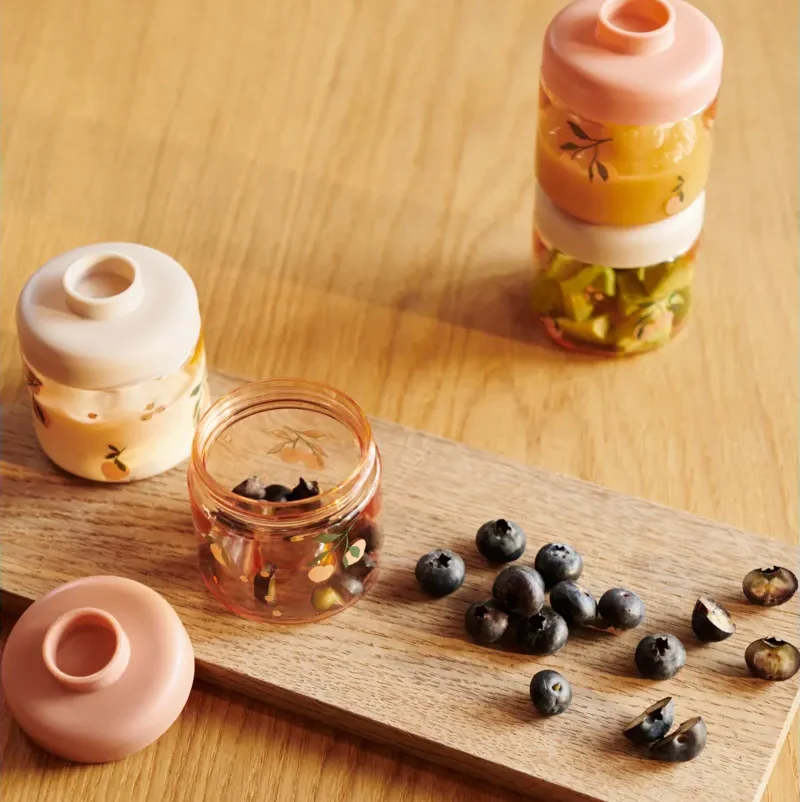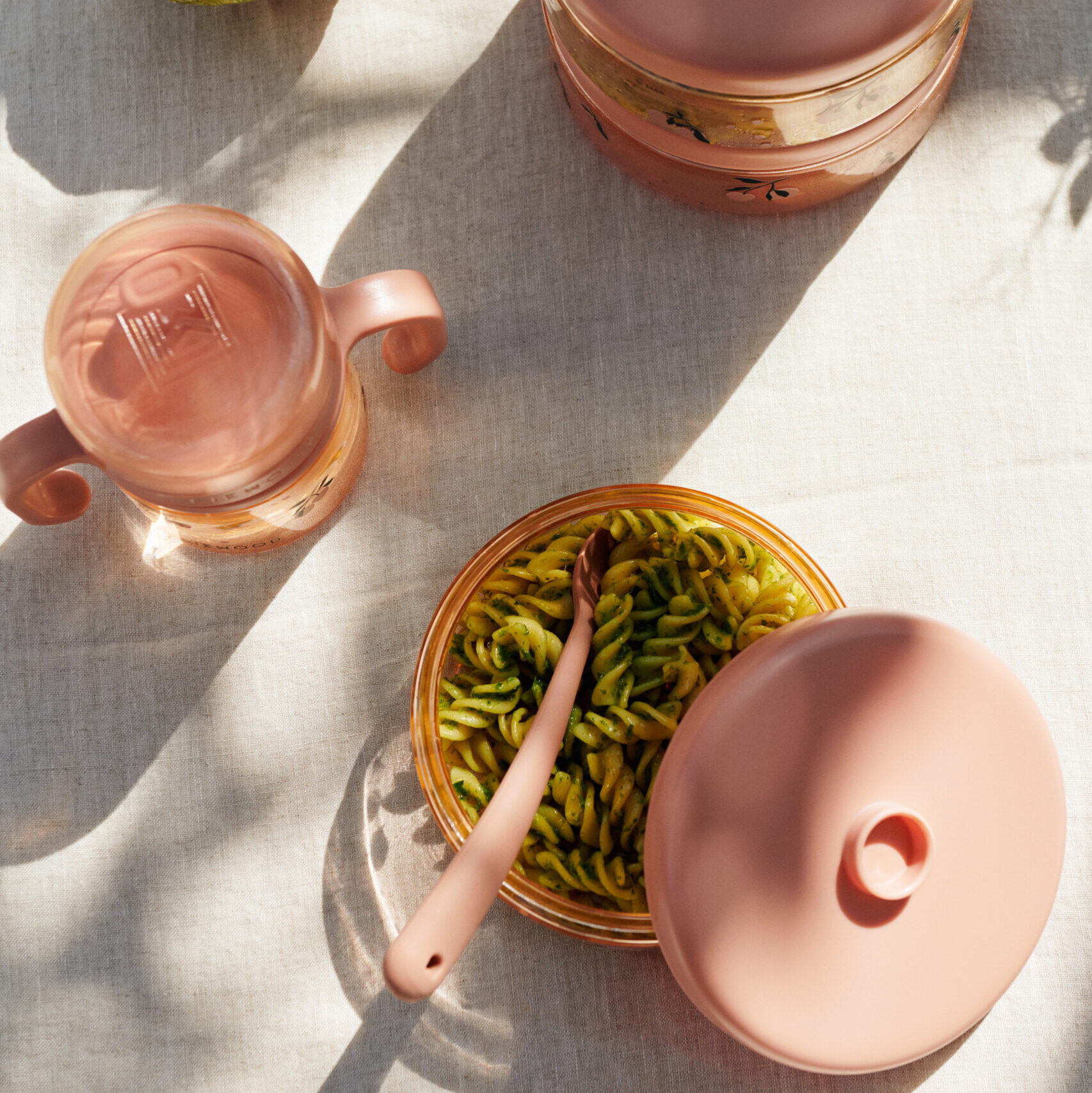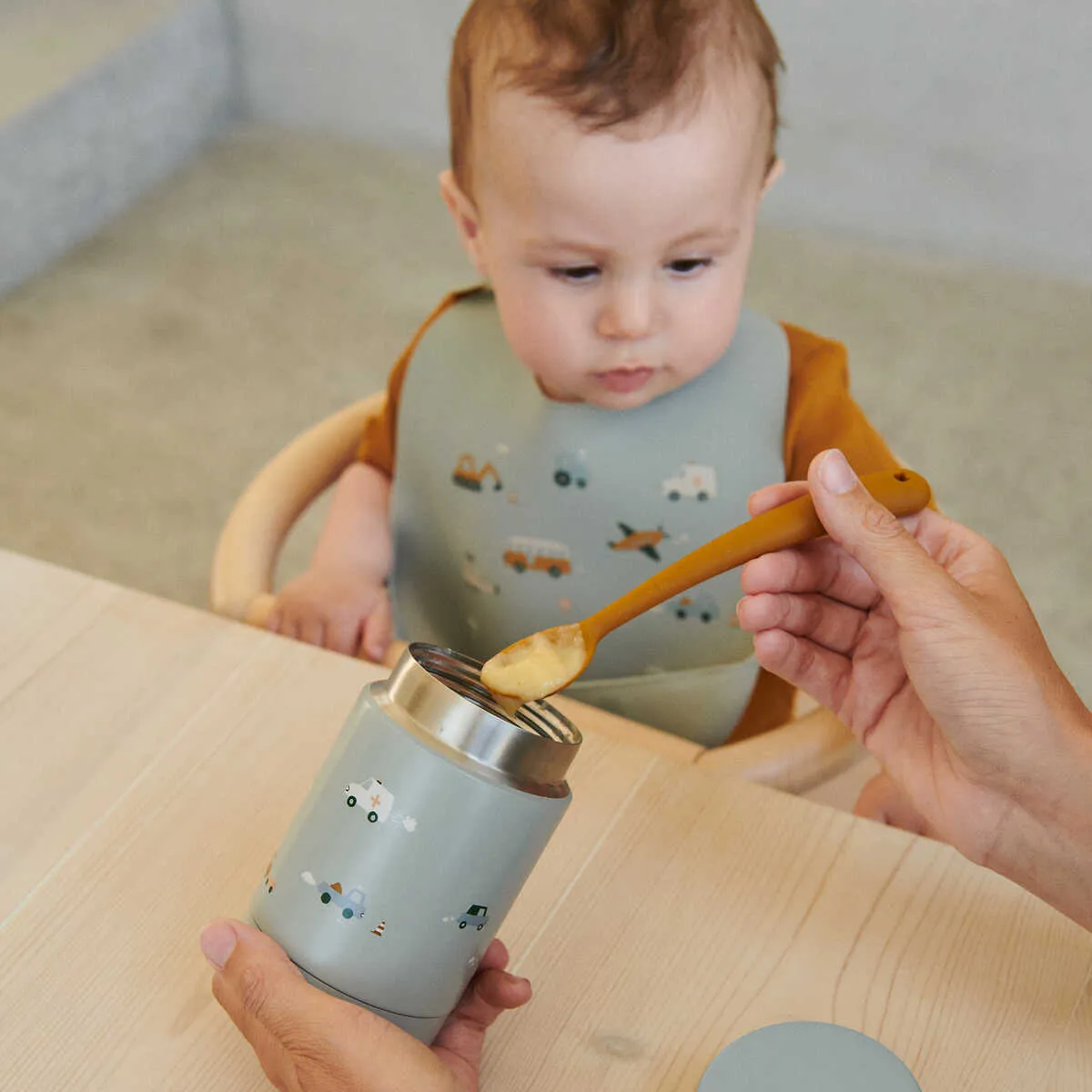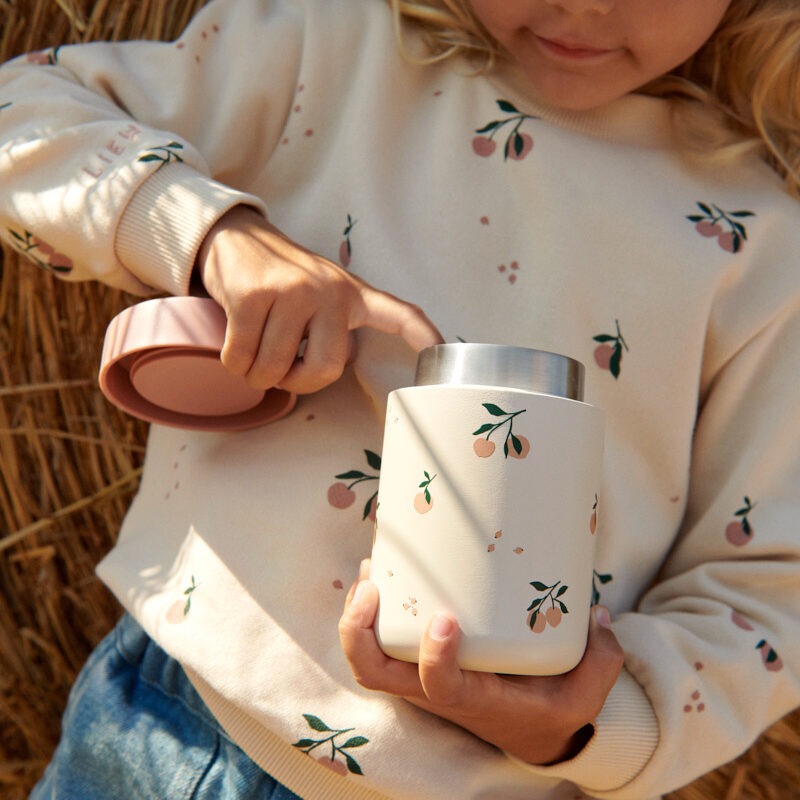You start with complementary foods – hooray! To make mealtimes peaceful and joyful, it's worth buying yourself some before the first bites. practical, safe and easy-to-maintain dining setBelow is a clear list of accessories with little tips that will be used up for a berry.
NB! The following is a practical guide to choosing accessories. For questions regarding your baby's readiness for complementary foods, allergies, or chewing and swallowing skills, consult your family nurse or doctor.
Before you start: 3 security basics
Correct sitting position – straight back, age-appropriate dining chair, legs supported if possible (chair with adjustable footrest).
Hands free – The table should reach the child's elbows so that it is easy to take food.
An adult is next to the child. and attentive – make a difference when coughing/gag’'sucking' vs. choking; do not leave a child alone to eat.
A basic kit to get you started right away
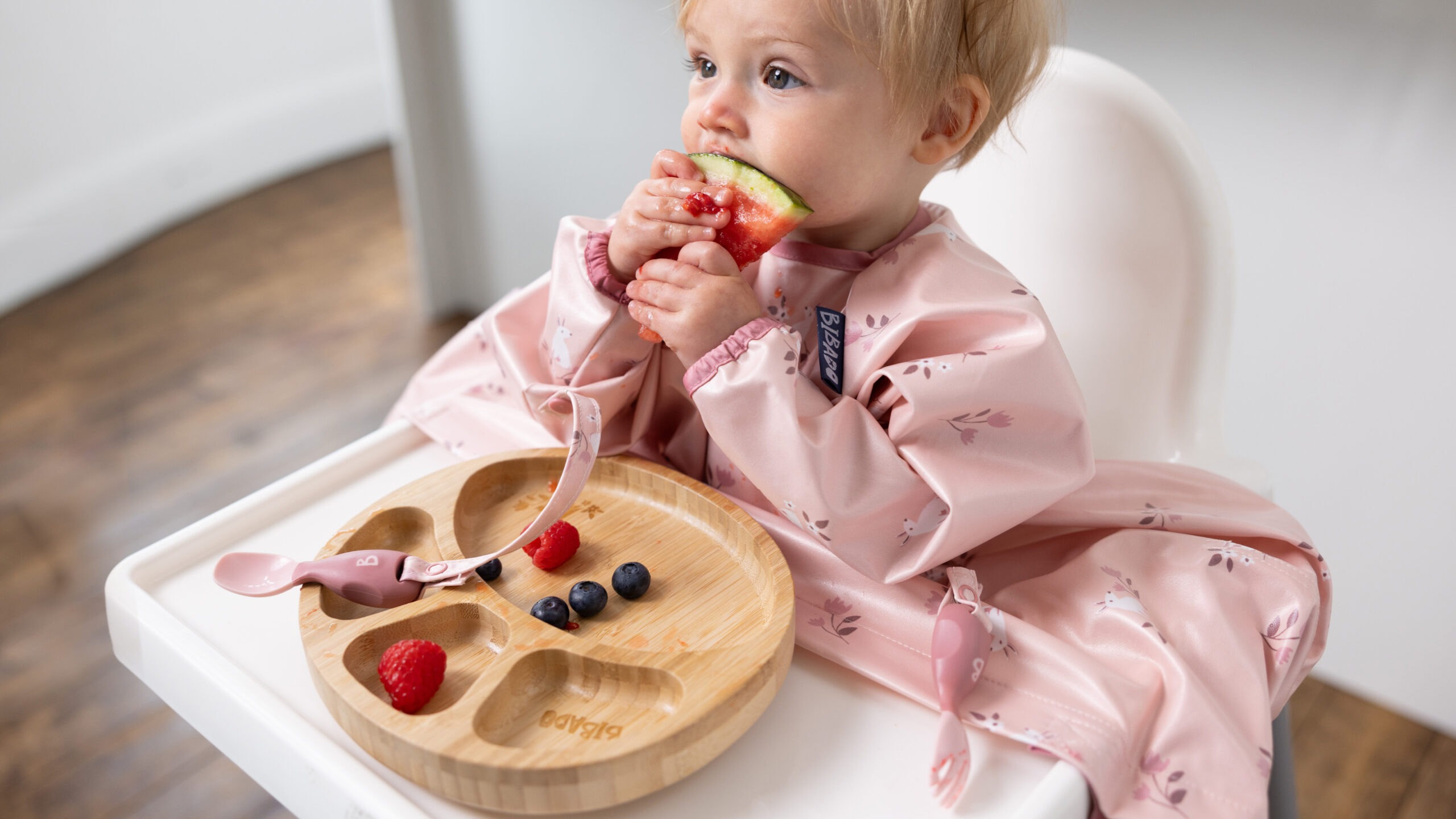
1) Apron
Apron keeps clothes and chairs clean, especially when experimenting with purees or when starting finger foods. We recommend purchasing 2 aprons – one for use, the other for drying. A bib that attaches to the table surface or “catches” food (e.g. an apron edge or food collection edge) is convenient – this way the eating area remains cleaner and cleaning is less of a hassle. In the Nordluvi selection you will find, for example, the highly successful BIBADO Coverall aprons, which are made of easy-to-clean material and are suitable for ages 6 months to 3 years. Less mess, less stress!
However, if you prefer a particularly carefree material, silicone aprons are another practical option - you can rinse them under the tap after eating and get on with your day!
-
Liewood long sleeve bib MERLE
€24.95 -
BIBADO Coverall long sleeve apron (6 months - 3 years)
€24.95 -
Liewood bib LAI
€16.95 -
Liewood silicone bib TILDA (2 pcs)
Original price was: €24.95.€21.95Current price is: €21.95.
2) Silicone suction cup bowl and/or a plate
Oh, how fun it is to throw the plate off the table. Suction cup keeps the cutlery in place - less tipping and mess. Bowl suitable for purees and porridges, a plate with shallow edges for the brave finger food lover. Choose LFGB certified or food-grade silicone, which is shatterproof, microwave-safe, and dishwasher-safe.
-
BIBADO bamboo plate with suction cups and sectors
€24.95 -
BooChew Rainboo silicone divided suction plate
€21.95 -
Liewood STACY divider suction plate (2 pcs)
€32.95 -
Liewood PEONY suction bowl (2 pcs)
Price range: €25.95 through €29.95
3) First spoons
The spoon should have an ergonomic short handle and a soft tip. It is also worth experimenting with pre-spoons, which you can fill with puree or smoothie yourself and the food will get stuck in the holes on the spoon - this way the child can practice hand-mouth coordination and feel the sense of accomplishment that something tasty is on the spoon. Recommended take 3–4 piecesto always have a clean spoon to take.
4) Cup + water bottle
A small cup best supports the development of mouth and jaw muscles. Drinking bottles and thermos bottles are a practical helper on trips and when practicing with water – we recommend having a leak-proof drinking bottle to avoid unnecessary confusion. A practical helper is also weighted drinking bottles with straws, because they allow the child to drink from any position and do not have to tilt the bottle.
-
Liewood sippy cup with handles NEIL
Price range: €15.95 through €18.95 -
Liewood baby drinking bottle/thermos bottle with handles KIMMIE 250 ml
€27.95 -
Liewood FALK stainless steel drink thermos with straw 350 ml
Price range: €26.95 through €28.95 -
HEORSHE Dental Care 360° drinking bottle with weighted straw 210 ml. 6+ months
€27.95 -
BIBADO Silicone Training Cup Sippit™ 4+ Months (2 pcs)
€14.95
5) Floor mat
Quick cleanup: shake off crumbs, wipe with a damp cloth. Waterproof underlays are ideal under the dining chairto protect the floor from food and liquids during your little one's mealtimes. These mats are also very practical for playing, having a picnic or also under an office chair, for example, so that the chair does not scratch the floor. Among the wonderful designs, you can find both single-colored and more extravagant patterned mats that blend into the interior and are a beautiful addition to any room. ~100×100 cm is usually sufficient for a single dining chair.
6) Cleaning combo
Use soft cloths to wipe your mouth, for example. muslin cloths or biodegradable wipes. When washing dishes, prefer clean warm water, a soft cloth/brush, or, in case of heavy dirt, baby-friendly dishwashing detergent.
-
Friendly Organic Baby Bottle & Feeding Utensil Wash 750 ml
€8.95 -
Liewood muslin cloth LEWIS (2 pcs)
Price range: €18.95 through €19.95 -
NAÏF Plastic-Free Baby Wipes 54 pcs
€4.95 -
Liewood wet wipes cover EMI
€13.95
7) Food storage molds and boxes
Baby-led weaning vs. purees: are the eating utensils different?
- BLW (baby-led eating or finger feeding): pressure on the plate and eating with hands, low plate, pre-filled spoons, floor mat wears out VERY badly.
- Puree offering: deeper bowl, soft small spoons; practice sipping water from a cup. Most accessories overlap – just choose a bowl + plate to seamlessly transition between styles.
Materials and maintenance: what to look out for
- Food-grade silicone (LFGB certified, BPA/BPS free) – this material is flexible, does not break, and is easy to wash and maintain.
- Glass into jars/boxes (does not absorb odors, is suitable for the oven/microwave, but is heavier and may break).
- Plastic: prefer BPA/BPS free, Tritan and dishwasher-safe.
- Bamboo/wood: beautiful and stylish, but needs drying and oiling; avoid long soaking.
- Laundry: aprons and cloths in the washing machine at 40 °C; silicone utensils in the dishwasher on the top rack, bamboo utensils hand wash.
Quick tips for calmer eating
- “Pre-load” technique: Fill a spoon and give it to your child - fine motor skills and confidence will grow.
- Eat once a day “without clothes” (diaper only) – less laundry and stress, more discovery.
- Serve 3-4 things at a time: 1 soft vegetable, 1 protein source, 1 carbohydrate, 1 new flavor (e.g. herb).
- Consistency > completeness: small portions, leisurely pace, joy from every bite – This is how your little one will become a true foodie.. Calm and wise, there's no rush!
FAQ
Do I have to buy the whole set at once?
No need! We recommend starting with an apron + bowl/plate + a few spoons + a drinking bottle or cup. Add the rest as needed.
Do suction cups really work?
Yes, if the surface is smooth and clean. Glass and varnished wood will work, textured wood and stone surfaces may hold less well. And of course, nothing protects the 100% from little hands.. 🙂
A cup with handles or a drinking bottle with a straw – which comes first?
The cup supports natural sipping; in real life, both are beneficial. Try a cup at home, a drinking bottle out and about, and combine as you prefer.
What to bring when eating out?
A small apron, a silicone bowl, a spoon, wet wipes, a box for leftovers.
Finally
The “starter kit” required is surprisingly small. Focus on a safe position, two or three high-quality dishes, and easy cleanup. – this is enough to make mealtime calm, pleasant, and educational.
